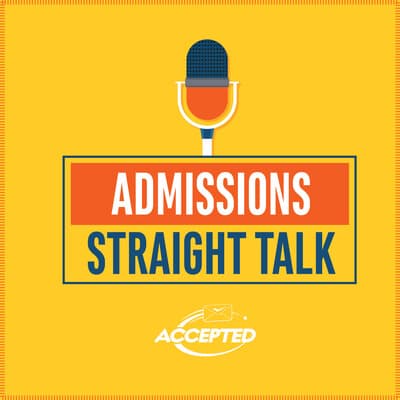Education
A career-changer's path to med school [Show summary] Valerie Fuchs holds a PhD in environmental engineering and spent eight years as a water resources engineer. This summer, however, she’ll start medical school. Hear how Valerie navigated med school admissions as an older, nontraditional applicant and got into her first-choice school. From engineering PhD to med student [Show notes] Are you an older, nontraditional potential med school applicant burned out on your profession? Are you thinking about medicine, but worried about starting over? Or are you just getting started? Valerie Fuchs earned her BS in civil engineering and her PhD in environmental engineering, and she did a postdoc fellowship at Yale. For the last eight years, she has worked as a water resources engineer. This summer, she is starting medical school. Can you tell us a little bit about yourself and your background? [1:46] I grew up in Spokane, Washington. I am the oldest of five kids from a big Catholic family. I went to a Catholic grade school over there, and then moved on to Gonzaga University, not far from home. I always kind of had that interest in math and science, I guess, and had cousins who were engineers, and I thought, well, I'll try this out and see how it goes. I really got interested in civil engineering, soil and water science, and those kinds of things. I thought as I went through school that what I really wanted to do was be able to help people in terms of water and sanitation, developing communities in particular. The direction I ended up going in grad school was sanitation for developing communities, so wastewater treatment in Bolivia and other countries in South America. I did research and a whole doctoral dissertation on it. Then I kind of continued that, but I started looking at storm water when I was at Yale for a year before transitioning into consulting engineering. I've been a consultant for about 10 years now. I have moved all over the country. I did a lot of research and work in different countries in Central and South America. Then finally, about six years ago, I decided I wanted to be closer to family and move back to Seattle. I've been here ever since. hbspt.cta.load(58291, '42471f69-103d-4aef-95dd-ea4921b3cc65', {}); What made you start thinking that engineering isn't for you, and that medicine is? [3:47] A few years ago, I started feeling like even though engineering is a great intellectual challenge for me, I wanted to be engaging more with people. My day-to-day work as an engineer is mostly sitting at a computer, crunching numbers on different types of projects. I wanted to be really doing something more one-on-one with people, potentially helping them improve their life in some way. So, I started looking at a variety of different options. I considered teaching high school science. I looked at becoming a massage therapist. That was until August of 2016, when my mom became ill and then passed away of Creutzfeldt-Jakob disease. I spent about three weeks with her in the hospital and in hospice, and all stress aside, I found myself really intrigued by observing her care team, her neurologist and the interns that were helping. They were just so engaged with us, with her, with our family, engaging with us, compassionate towards us, and doing so much hard work to try to figure out what this really rare disease was that she had, Creutzfeldt-Jakob disease. If you heard, probably 10 or 20 years ago, there was a lot of news about Mad Cow Disease. It's basically the human form of that. It means that there's a certain protein in the brain, a prion protein, that changes form, and that causes a domino effect of these other proteins to change form, and that creates holes in the brain. It’s a neurodegenerative disease that can happen really fast that usually hurts people in their 60s. It's extremely rare, and they don't know why it happens or how to cure it. It was really out of nowhere.

